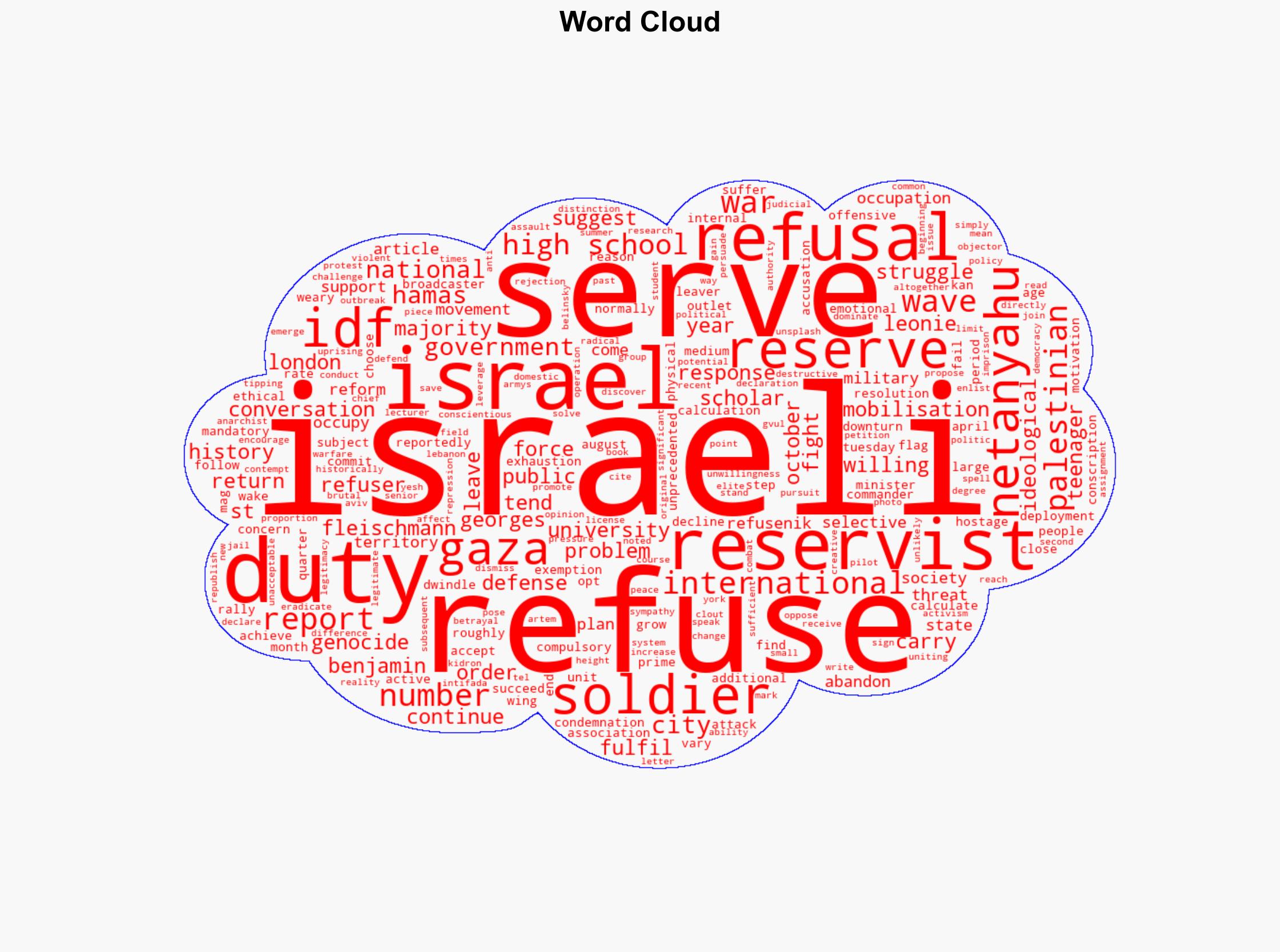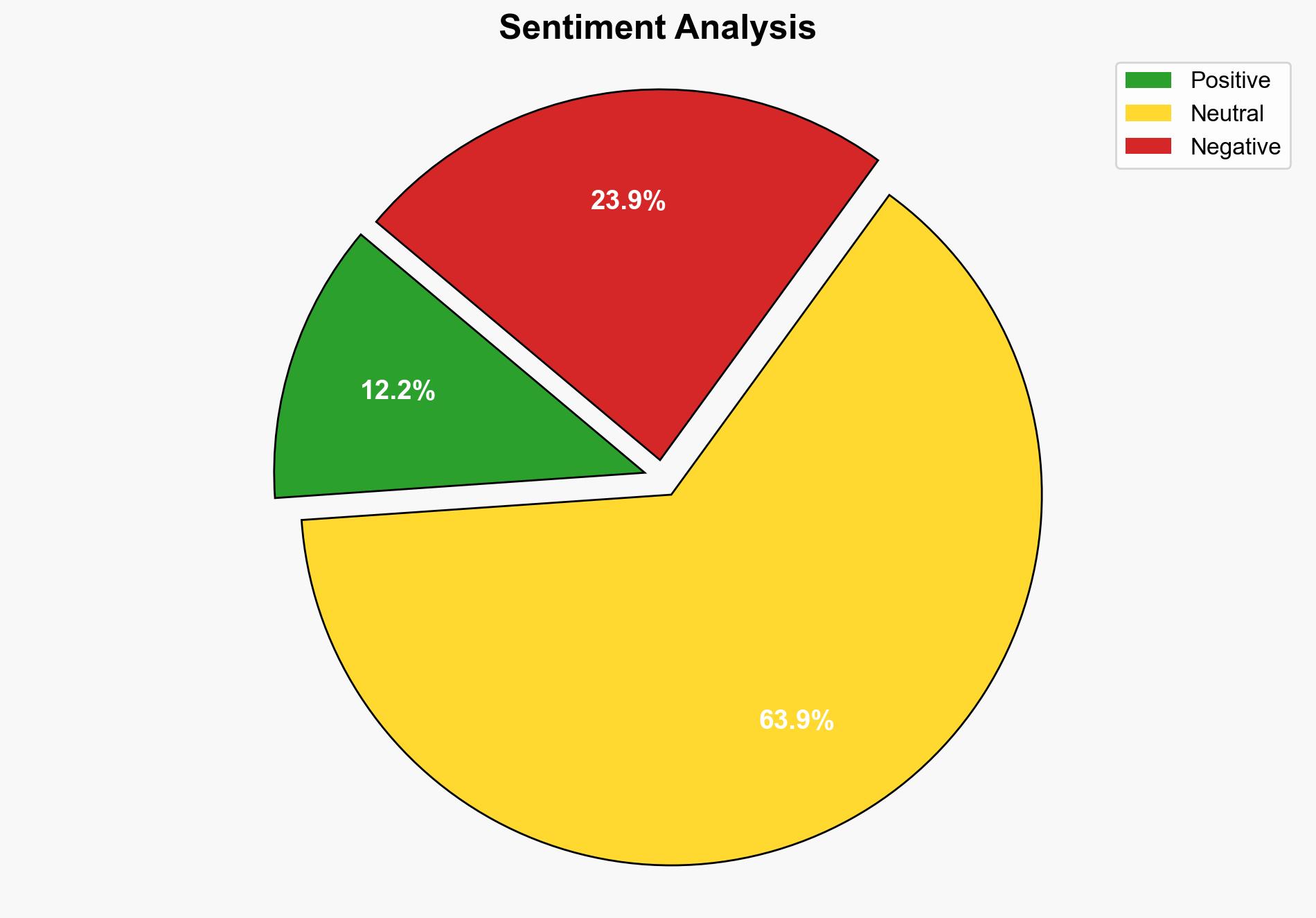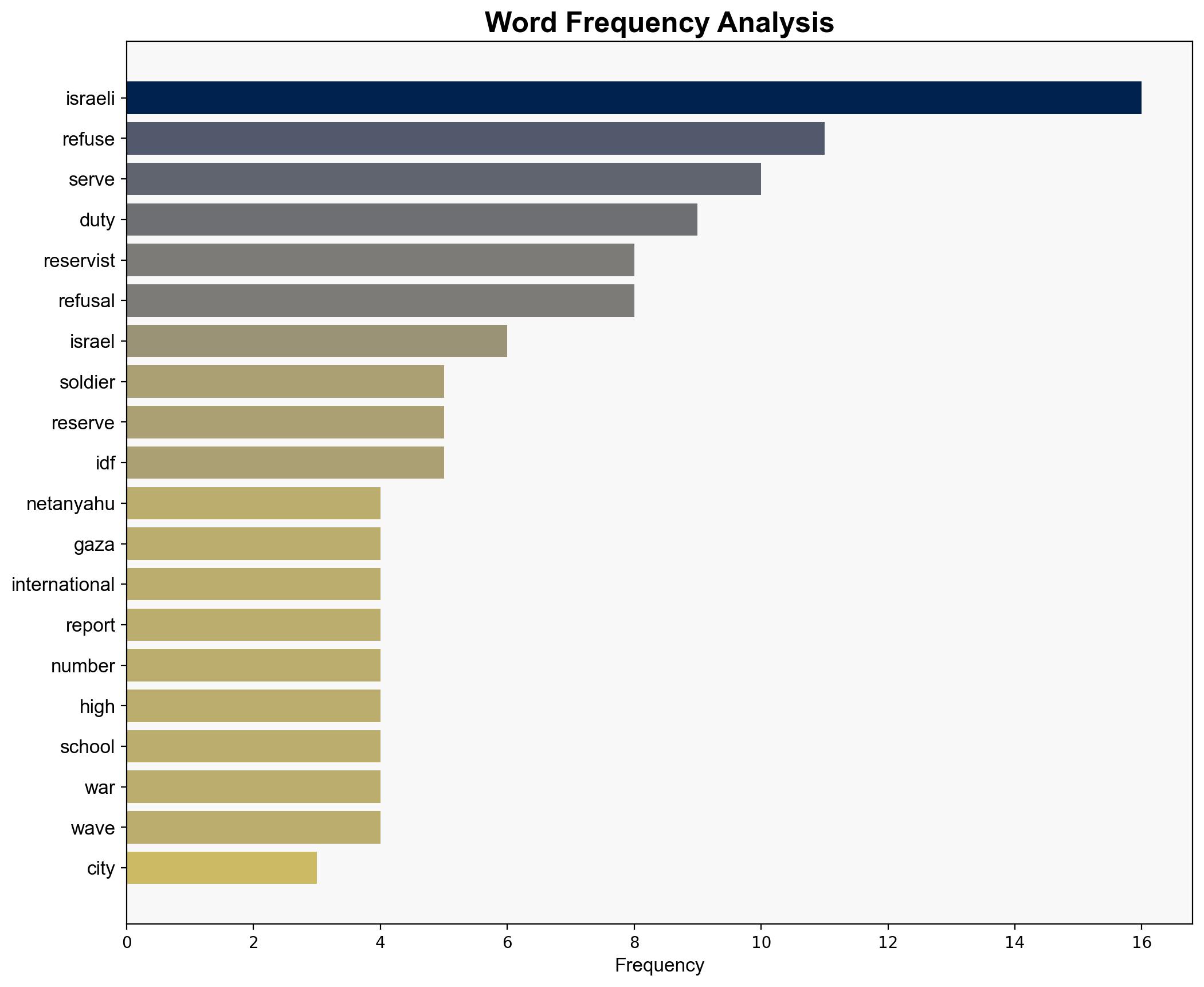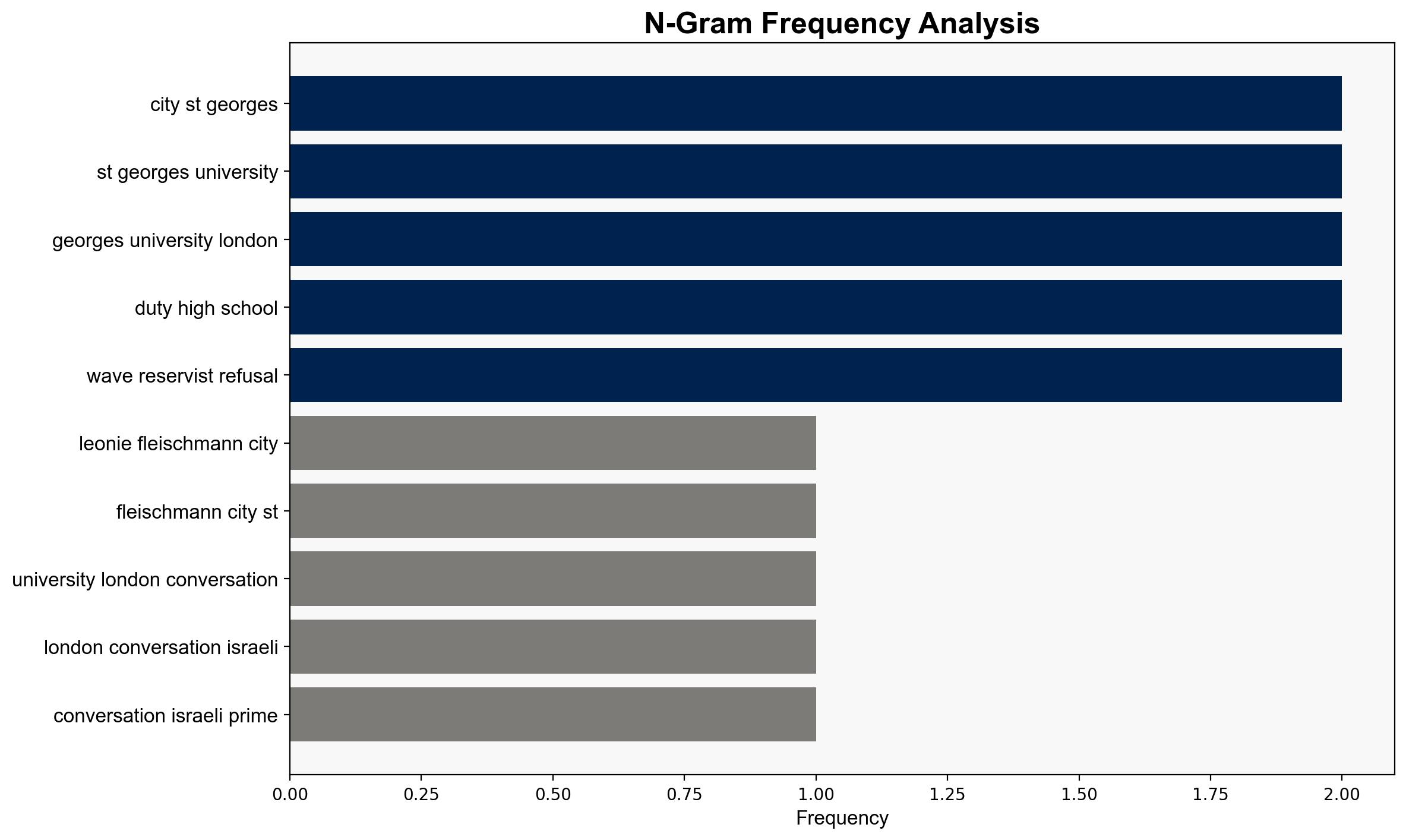Israels Refuseniks a growing Number of Soldiers are refusing to Serve in Netanyahus War on Gaza – Juancole.com
Published on: 2025-09-06
Intelligence Report: Israels Refuseniks a growing Number of Soldiers are refusing to Serve in Netanyahus War on Gaza – Juancole.com
1. BLUF (Bottom Line Up Front)
The growing refusal among Israeli reservists to serve in the conflict against Hamas in Gaza presents a significant challenge to the Israeli Defense Forces’ operational capabilities. The most supported hypothesis is that ideological and ethical concerns are driving this refusal, potentially undermining military effectiveness and domestic support for the government. Confidence level: Moderate. Recommended action includes monitoring the situation for shifts in public sentiment and preparing for potential operational adjustments.
2. Competing Hypotheses
1. **Hypothesis A**: The refusal to serve is primarily driven by ideological and ethical concerns, reflecting a broader societal shift against prolonged military engagement and occupation policies.
2. **Hypothesis B**: The refusal is largely due to exhaustion and disillusionment with the effectiveness of military operations, compounded by personal and emotional fatigue among reservists.
Using Analysis of Competing Hypotheses (ACH), Hypothesis A is better supported by the evidence of public declarations, historical patterns of selective refusal, and ideological statements from reservists. Hypothesis B is less supported but still plausible given reports of physical and emotional exhaustion.
3. Key Assumptions and Red Flags
– **Assumptions**: It is assumed that the refusal is widespread enough to impact military operations significantly. There is also an assumption that public declarations accurately reflect broader sentiment.
– **Red Flags**: Potential bias in media reporting, especially from ideologically driven outlets. Lack of quantitative data on the exact number of refusals and their impact.
– **Blind Spots**: The potential influence of external actors or events on reservist sentiment is not fully explored.
4. Implications and Strategic Risks
The refusal movement could lead to operational challenges for the IDF, potentially reducing effectiveness in the Gaza conflict. This may also embolden opposition groups and impact Israel’s international standing. Domestically, it could lead to increased political polarization and challenge the government’s policy direction. The situation could escalate if refusal numbers grow or if public protests increase.
5. Recommendations and Outlook
- Monitor public sentiment and reservist declarations for shifts in motivation and scale.
- Prepare contingency plans for potential operational shortfalls in the IDF.
- Engage in dialogue with community leaders to address ideological concerns and mitigate further refusals.
- Scenario Projections:
- Best Case: Refusal numbers stabilize, and the government addresses concerns, maintaining operational capability.
- Worst Case: Refusal numbers increase, leading to significant operational challenges and domestic unrest.
- Most Likely: Continued refusals at current levels, requiring strategic adjustments but not crippling operations.
6. Key Individuals and Entities
– Benjamin Netanyahu
– Leonie Fleischmann
– Israeli Defense Forces (IDF)
– Yesh Gvul movement
7. Thematic Tags
national security threats, military readiness, regional stability, ideological conflict




